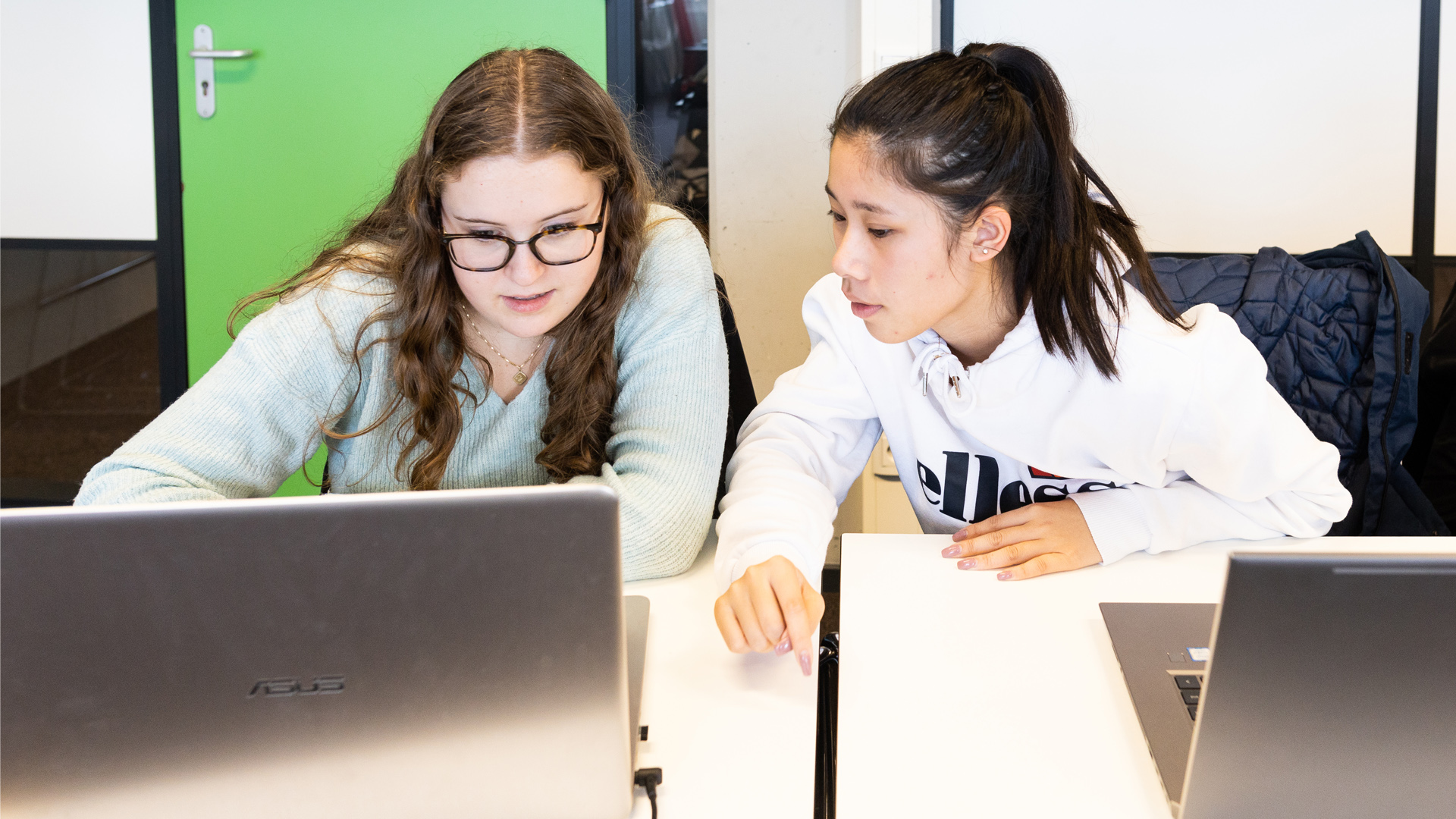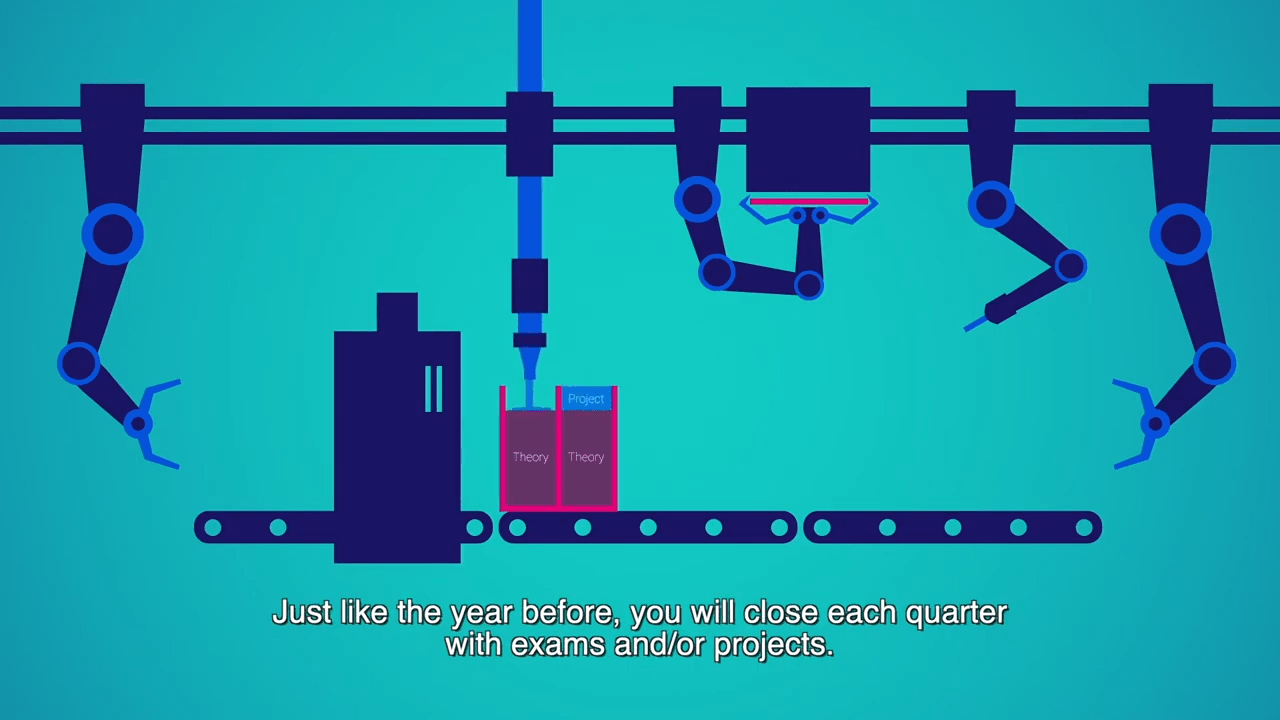Courses

A students' experience about the programme:
"The programme devotes a lot of time to cooperation and personal development. That is extremely important if you are going to work in the business world after your study. In addition, during your internship, you immediately get a clear picture of how mathematics is applied in the business world. You are broadly employable!"Courses

This YouTube video is not visible because you haven't accepted our cookies yet.
Taking a technical course at Fontys: what will your 4 years look like?
In the video, we explain what studying technology at Fontys looks like.In the first year you will be prepared with a solid basis of mathematics and data science, especially in the field of Logistics and Engineering. A study week consists of:
- 16 hours lessons/theory
- 12 hours of practice/projects
- 12 hours of independent studying
During the second year you will follow your first internship that focuses on orientation in the professional field. At the end of this year, you will complete the basic knowledge and skills. In addition to these basics, you will have knowledge of the following fields:
Operations Research
Operations Research focuses mainly on the logistics sector. You will learn how to collect and structure relevant information. You will also learn how to apply mathematical models and techniques to solve logistic problems. You finish the year with a recommendation for the future distribution network of a (fictitious) company.
Data Science
Data Science, in addition to probability and statistics, you will also learn programming skills. The disciplines of mathematics and computer science meet here. In addition to collecting data, you will learn to analyse, model and clean up this data and make the data transparent. This enables you to discover patterns, make predictions and conclude. You could for example work on a selection method for picking ripe tomatoes with photographs.
Engineering Mathematics
In Engineering Mathematics, you will learn to translate a practical context into a mathematical model. Important subjects are 'systems and signals' and 'modelling with differential equations'. Find out for example when a small deviation of the position of a screw during an assembly process of a car becomes a big problem.
All students follow the learning line Professionalism. Here you will develop soft skills such as cooperation, presentation and communication of complex matters in an easy way. You will need to reflect on yourself and will also be taught business ethics, networking and applying for jobs.
In the third year, you will deepen your knowledge. You will also do an internship with a company.
Minor
You will do a minor with another Fontys study programme or with another educational institute in the Netherlands or abroad. A minor is a coherent package of courses according to your interests with which you can broaden your knowledge and competencies or specialise in your field of study. You have, to a certain extent, a free choice in the content of the minor. It is also possible to take the minor as a pre-masters course if you wish to pursue a master's degree after completing this programme.
Internship
During your internship, you will apply your knowledge and experience in the business world, either in the Netherlands or abroad. You will receive intensive supervision from the programme and at your work placement.
Related courses
In addition to Applied Mathematics/Data Science, Fontys University of Applied Sciences offers the technical programmes Automotive Engineering, Electrical and Electronic Engineering, Mechanical Engineering & Mechatronics.
More information about related courses